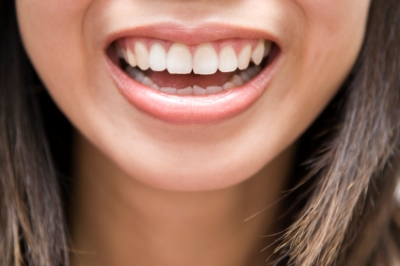
Fluoride is a naturally occurring mineral that is necessary for your teeth to develop properly and not decay. We find fluoride most often in our public water supplies, which gives us some protection against tooth decay compared to people in other countries. But why is this mineral so important to our teeth?
Fluoride: The Surprising Supplement
We’re used to being told to supplement our diet with vitamins for a healthier body. Our teeth need vitamins and minerals, too, to stay strong and healthy. It’s true that the enamel coating on our teeth is the hardest substance in our body. But that doesn’t mean that it can’t be damaged.
While the enamel of our teeth is the hardest substance in our body, that doesn’t mean that it can’t be damaged. Just like the rest of our body, our teeth need vitamins and minerals to stay healthy and strong. Sadly, due to a process called demineralization, the teeth routinely lose minerals. Without enough vitamins and minerals our teeth or more likely to decay and get cavities. This is where fluoride can help.
Fluoride is a naturally occurring mineral that can be found in water and various foods, and can restore the minerals to our teeth to counteract the demineralization, in a process called remineralization. For good oral hygiene, our teeth must maintain a healthy amount of remineralization to balance the constant demineralization for two reasons. First, regaining minerals can basically repair our teeth, allowing them to recover from the minerals that were lost. Second, minerals such as fluoride can make our teeth stronger, protecting them from future damage and decay.
There is a slight risk that you can get too much fluoride and develop something called “dental fluorosis.” The majority of instances of this disorder are very mild, and small white spots appear on the surface of your teeth or back of your teeth. In the rare, severe cases, the appearance of the enamel can drastically change, with pits forming on the teeth. With careful use of fluoride, it’s simple to avoid developing fluorosis.
How To Use Fluoride For Oral Hygiene?
Even though some fluoride exists naturally in food and water, it isn’t enough to make an impact on the remineralization of your teeth. That’s why we need outside sources of fluoride. In the U.S., almost all public water facilities add fluoride to the drinking water that comes out of your faucet. They monitor the fluoride and vary it depending on the optimum quantities of fluoride we generally need. This optimum level helps us get fluoride to stay health, but not too much to be overexposed.
However, we can take additional steps to increase our teeth’s exposure to mineral building fluoride. Dr. Pristera recommends a fluoride toothpaste and mouth rinse to get these additional oral hygiene advantages. You can buy these products in almost any store.
Good Oral Hygiene Is More Than Just Fluoride
Fluoride is just one way that you can improve your oral health by keeping the minerals flowing that your teeth need to stay strong. However, it does not replace the need for regular brushing or check-ups with your dentist. Fluoride alone does not clean our mouth or eliminate the food particles that build up in your braces and between your teeth when you eat. It doesn’t kill bacteria that can turn into harmful plaque. Dr. Pristera encourages you to brush your teeth after every meal, or at least twice a day and floss once a day. If you have any questions about fluoride or fluoride products, please contact Dr. Pristera’s office at (425) 430-1320. He and his staff are always ready to answer your questions and lead you on the path to the best oral hygiene possible.

